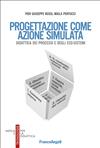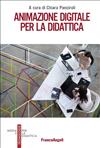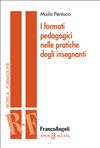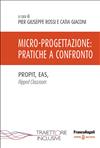
In this paper, we present an example of a Digital Learning Ecosystem, set up during the first period of the pandemic emergency and then remodelled and re-proposed for hybrid didactics provided afterwards, involving five pedagogical-didactic courses of two universities in central Italy. The central device in this Ecosystem was recursive feedback, which in contexts of didactics mediated by screens can anyhow activate discursive, adaptive, interactive and reflexive dynamics. In order to understand if these aims were pursued, we administered an open-ended questionnaire to 274 students, which was not intended to measure their enjoyment of the method and the environment, but their perceptions regarding the effectiveness of the system on their learning processes, not only at a cognitive level, but also on at an interpersonal and intrapersonal level. The analysis was conducted according to the Structural Topic Model, which allowed us to re-read the responses as a unique corpus of reflective writings, generated by the students after the input provided by the assigned task.



